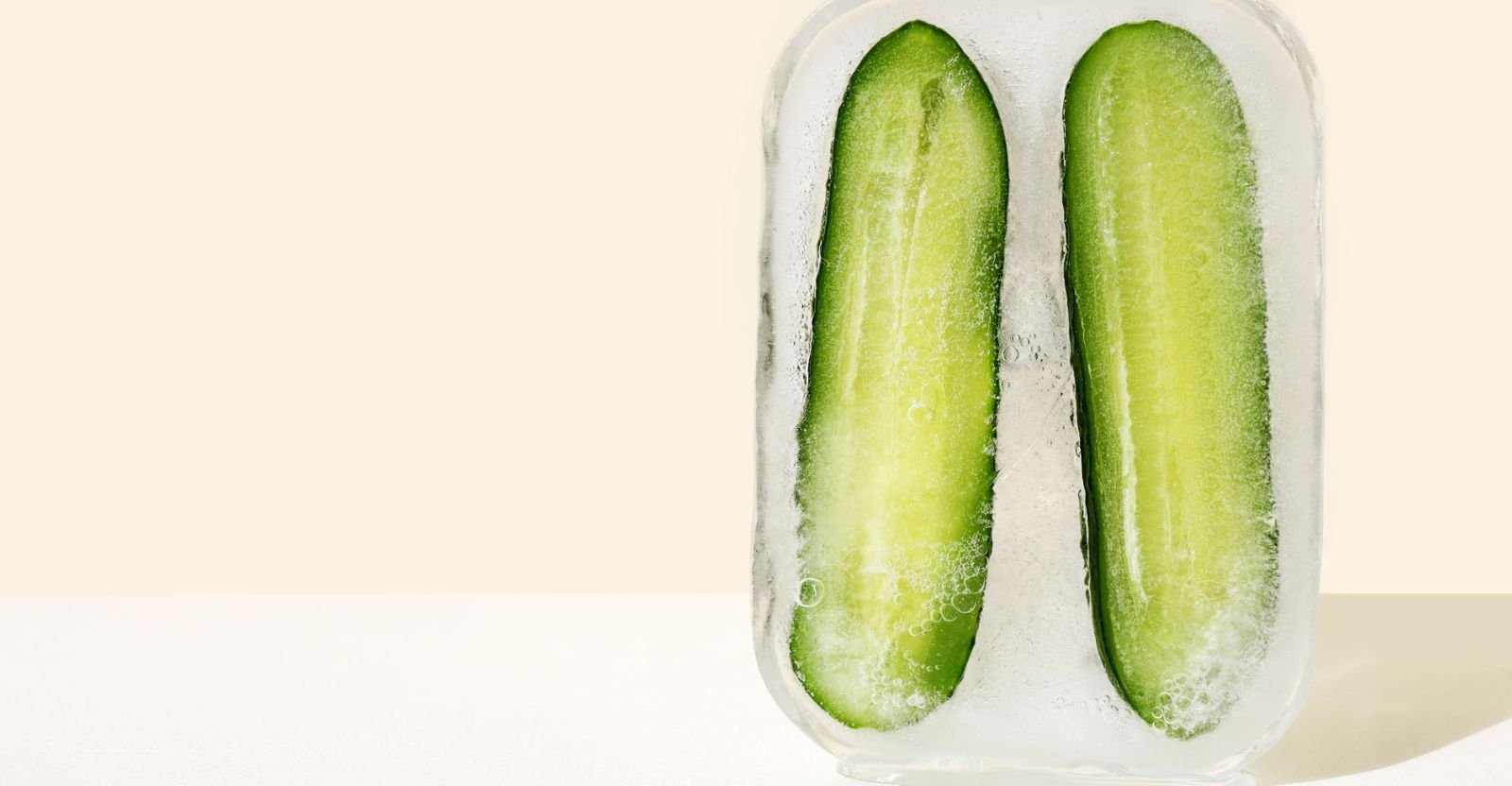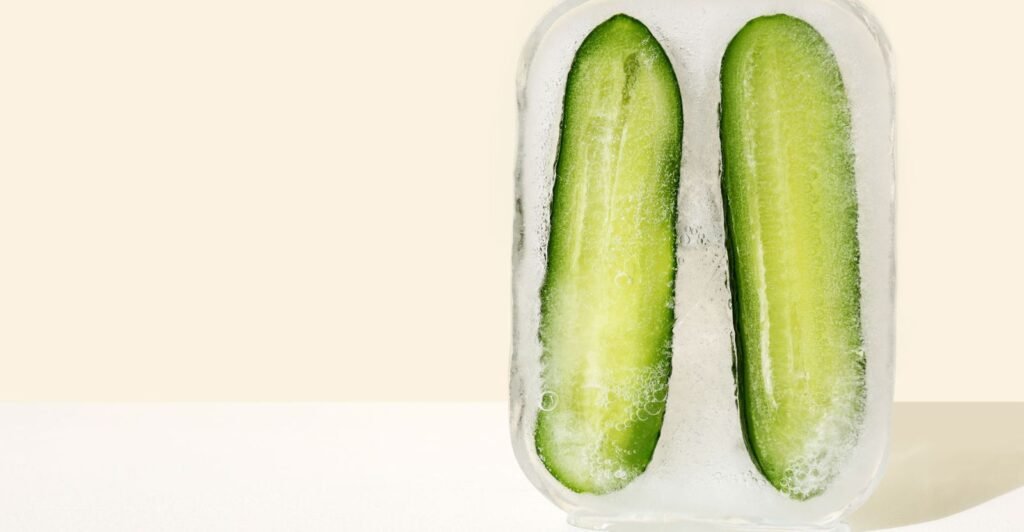
Can You Freeze Cucumbers?
Cucumbers are a refreshing, nutritious veggie known for their high water and fiber content. They make for a great addition to salads, especially when paired with lettuce, green peppers, and tomatoes. However, they can spoil quickly, leading to waste if not stored properly. So, can you freeze cucumbers to make them last longer? The simple answer is yes, but there are a few steps you need to follow to keep them from becoming mushy when thawed.
Since cucumbers have a high water content (over 95%), freezing them directly can lead to a soft, mushy texture. To avoid this, it’s best to pickle them or follow specific freezing methods. By doing this, you can preserve cucumbers for months while keeping their essential nutrients intact.
This guide will cover different ways to freeze cucumbers and offer suggestions on how to use them after freezing.
Can You Freeze Cucumbers?
:max_bytes(150000):strip_icc()/103302878_preview-ea61df0b60e946378cd6ce5bcf6d18aa.jpg)
Yes, you can freeze cucumbers, but you need to prepare them in a certain way to avoid them turning mushy. While freezing cucumbers will preserve their nutrients, it also causes the water inside them to freeze, which can damage their delicate cell structure. This can lead to a soft texture when thawed, although they remain edible.
To prevent this, it’s best to soak cucumbers in a brine solution before freezing them. The salt in the brine helps prevent ice crystals from forming, maintaining the cucumber’s firmness even after freezing.
Why Should You Freeze Cucumbers?
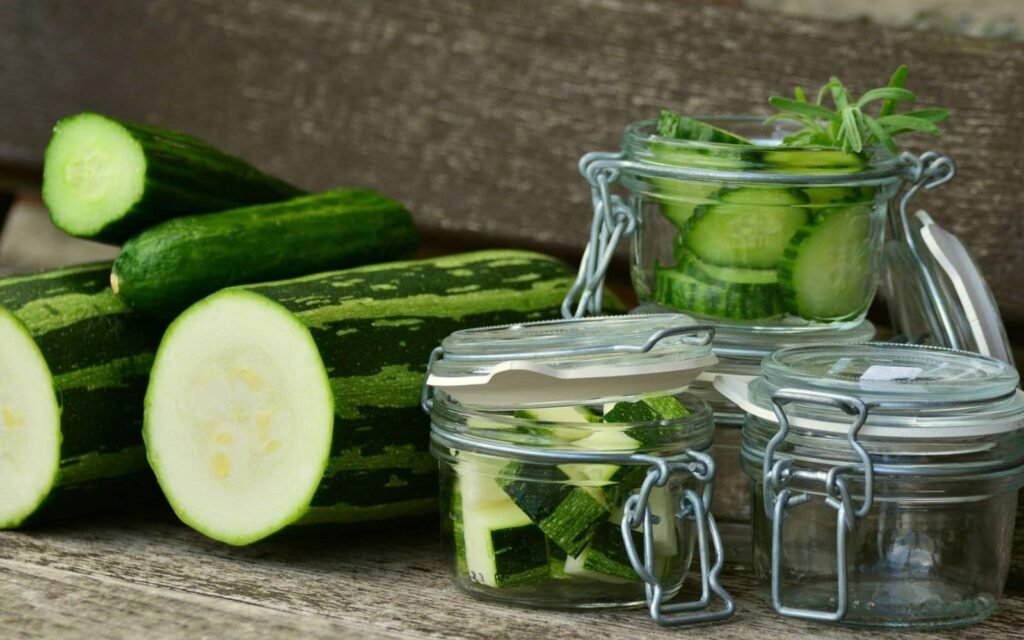
Cucumbers are low in calories and high in water, making them a great hydrating food choice. They also contain small amounts of vitamin A, vitamin C, calcium, magnesium, and other minerals that help with digestion and may lower cholesterol.
However, cucumbers are perishable and can spoil quickly. If you’re growing them at home or bought too many, freezing them allows you to enjoy their fresh taste year-round. Freezing cucumbers is also cost-effective, saving you money on purchasing them while helping you avoid waste.
How to Freeze Cucumbers
:max_bytes(150000):strip_icc()/sliced-cucumber-kitchen-counter-getty-0322-2000-f47e336d5c164aee8b32ecbc75522733.jpg)
There are several ways you can freeze cucumbers, depending on your preferences. Here are some simple methods to choose from:
1. Freezing Cucumbers After Blanching
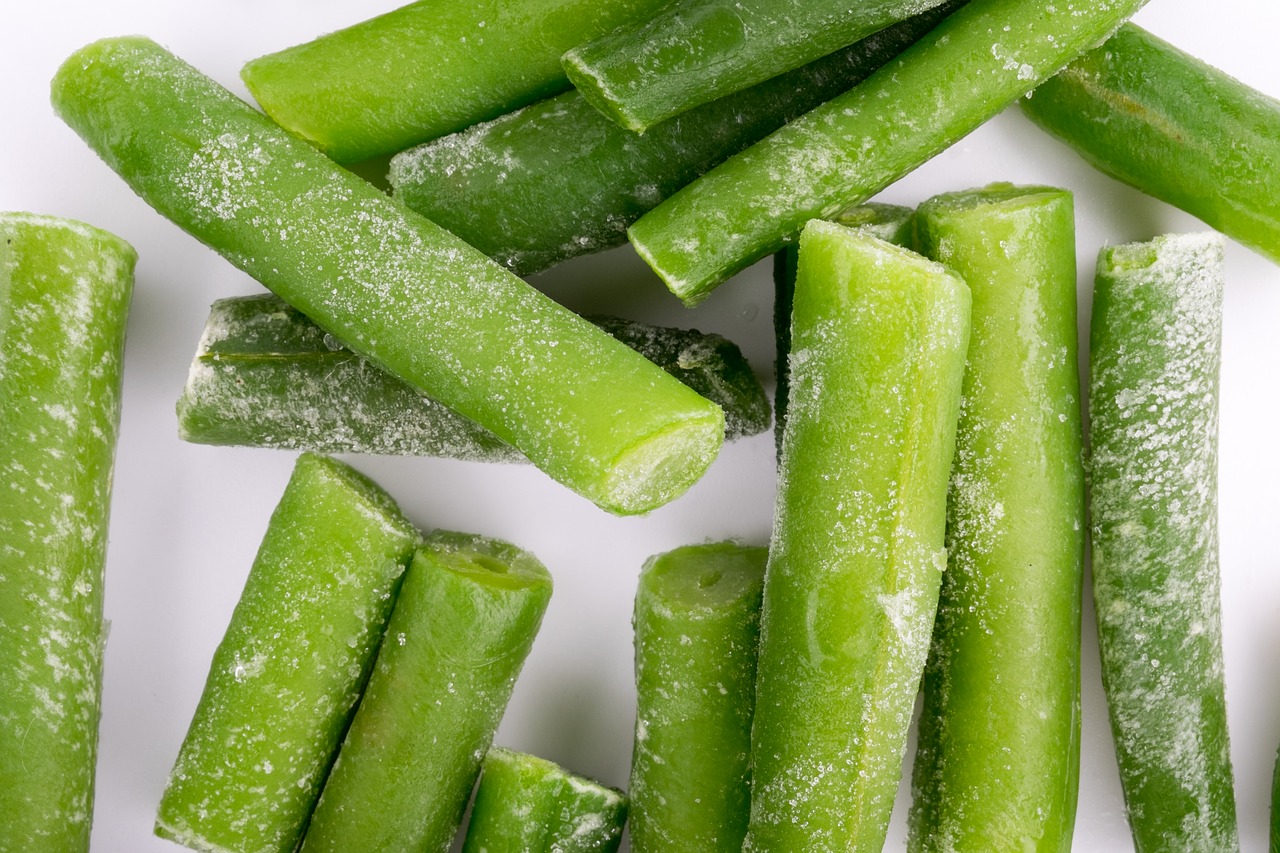
Blanching is a process where you briefly dip cucumbers in boiling water or steam to stop the enzymes that can degrade their quality. This method helps preserve the cucumber’s color, texture, and flavor.
Here’s how to blanch and freeze cucumbers:
- Boil Water: Bring a pot of water to a boil. Submerge the cucumbers for 1-2 minutes (don’t over-blanch, or they’ll lose nutrients).
- Cool Quickly: After blanching, immediately transfer the cucumbers into a bowl of ice water to cool them down for the same time as blanching.
- Dry and Pack: Dry the cucumbers thoroughly, then pack them into freezer bags or airtight containers. Be sure to remove as much air as possible to prevent freezer burn.
- Freeze: Place the packed cucumbers in the freezer. A quick freeze is recommended, so set your freezer to the lowest temperature and place the cucumbers directly on a flat surface.
2. Freezing Cucumber Slices
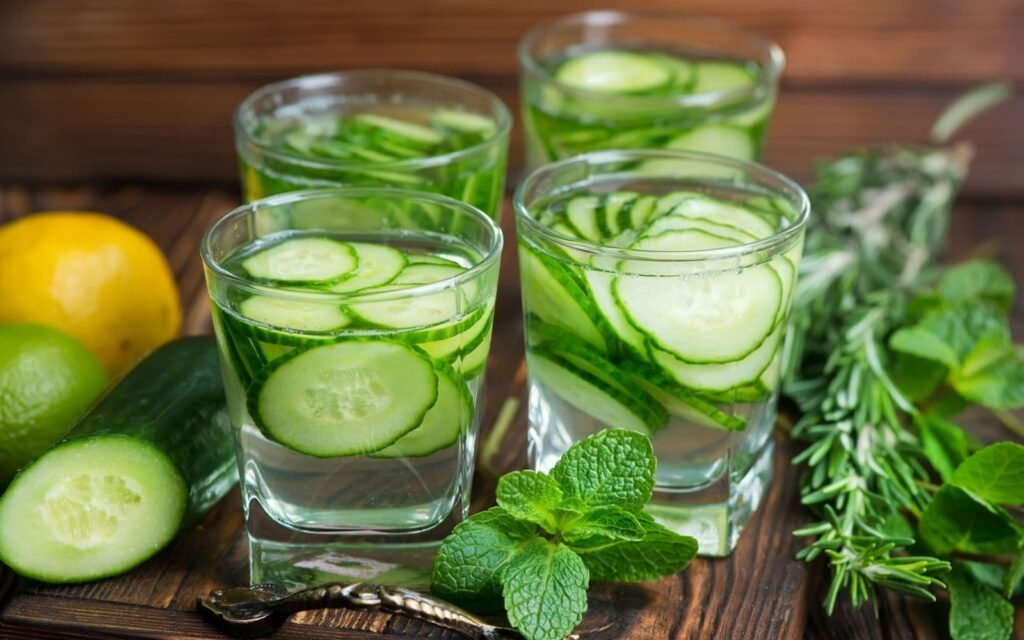
If you prefer not to freeze whole cucumbers, you can slice them and freeze them instead. Here’s how:
- Wash and Slice: Clean the cucumbers thoroughly and slice them into 1-2 inch rounds. If there’s any wax coating, soak the cucumbers in warm water first.
- Freeze on a Baking Sheet: Lay the slices out on a baking sheet lined with parchment paper. Make sure the slices don’t overlap.
- Store: Once the slices are frozen solid, transfer them to a freezer bag or container. Store them flat to save space.
Alternatively, you can also cut the cucumbers into small cubes and freeze them in ice cube trays. Fill the trays with the cucumber cubes, add water, and freeze. Once frozen, pop the cubes out and store them in a bag or container.
3. Freezing Cucumbers in Brine
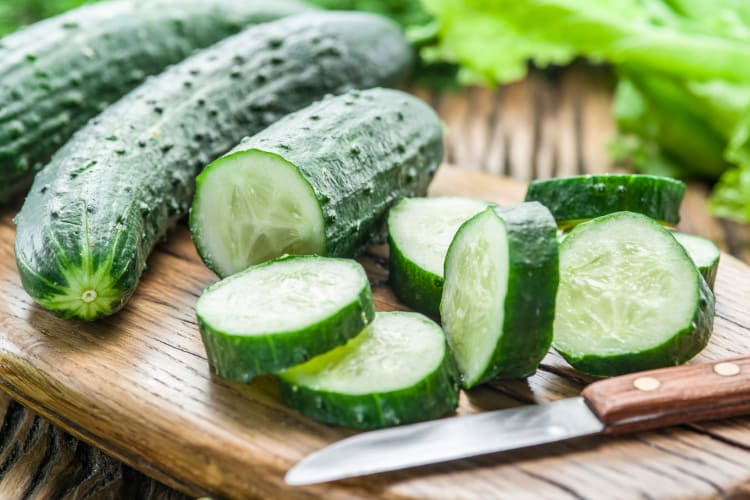
Pickling cucumbers is a great way to preserve them with flavor while keeping them crisp. Here’s how to freeze cucumbers in brine:
- Make the Brine: Mix 1 cup of apple cider vinegar, 2 cups of sugar, 2 tablespoons of salt, and some mustard and celery seeds. Heat it for about 30 seconds in the microwave and stir it well.
- Slice Cucumbers: Slice the cucumbers into long pieces and place them in a wide-mouth glass jar.
- Pour the Brine: Fill the jar with the brine solution, leaving a bit of space at the top to allow for expansion during freezing.
- Freeze: Seal the jar and let it freeze for 2-3 days.
The brine keeps the cucumbers crunchy, making them perfect for use in salads or as pickles later on.
4. Freezing Cucumber Puree

Freezing cucumber puree is great for adding to smoothies or water. To do this:
- Peel and Blend: Peel the cucumbers, blend them into a smooth puree, and then fill ice cube trays with the puree.
- Freeze and Store: Once frozen, transfer the cubes into a sealed plastic bag or container for later use.
How to Thaw Frozen Cucumbers
:strip_icc()/BHG-Can-You-Freeze-Cucumbers-102059295-bd1cd6761523410d9b18e4b16a150afb.jpg)
To thaw frozen cucumbers, place the amount you need in a bowl or container. Let them sit at room temperature for 10-15 minutes to thaw. Because cucumbers release a lot of liquid when thawed, it’s a good idea to use a deep bowl to catch the excess water.
Alternatively, for a slower thaw, you can move the cucumbers from the freezer to the refrigerator the night before you plan to use them. This is a great method if you’re planning to make sauces like tzatziki or chilled soups like gazpacho.
You can also toss frozen cucumber slices directly into water bottles to make a refreshing, chilled beverage without having to thaw them first.
5 Best Ways to Use Frozen Cucumbers

Frozen cucumbers are versatile and can be used in various ways:
- Infuse Water: Frozen cucumber slices are perfect for making refreshing cucumber-infused water. Add some lemon and mint for extra flavor.
- Make Smoothies or Soups: Blend frozen cucumber slices with other fruits and vegetables for a cool, healthy drink or use them in cold soups with yogurt or cream cheese.
- Skin Care: Frozen cucumber slices are great for cooling your skin. Place them over your eyes to reduce puffiness or just to relax.
- Pickle for Snacks: Use your frozen pickled cucumbers in salads or as a quick snack. They’re perfect for a summer picnic.
- Make Sorbet: Combine frozen cucumber with fruits and berries to make a refreshing sorbet—ideal for hot days.
By following these methods, you can enjoy cucumbers long after they’ve been harvested, without worrying about spoilage. Whether you prefer them in water, smoothies, or as pickles, freezing cucumbers is an easy and effective way to make the most out of this cool vegetable all year round.
FAQs for Freezing and Storing Cucumbers
1. Can cucumbers be frozen?
Yes, cucumbers can be frozen, but they tend to lose their crispness once thawed. Freezing cucumbers works best when you plan to use them in recipes like smoothies, soups, or pickles, where texture isn’t as important. If you want to preserve them for long-term use, it’s best to blanch or pickle them first.
2. How do I prepare cucumbers for freezing?
To freeze cucumbers, wash them thoroughly and peel (if desired). You can slice or dice them into your preferred size. To help preserve flavor and color, it’s a good idea to blanch the cucumbers by briefly boiling them for 1-2 minutes and then plunging them into ice water to cool down before freezing.
3. Should I remove the seeds from cucumbers before freezing?
While you don’t have to remove the seeds, it’s a good idea to remove them if you’re freezing cucumbers to use in smoothies or soups. This can help reduce excess moisture and improve the texture of the final dish.
4. How long can frozen cucumbers be stored?
Frozen cucumbers can be stored for up to 6 months. After this time, the texture may degrade, but they will still be safe to eat. Be sure to store them in an airtight container or freezer bag to avoid freezer burn.
5. Can I freeze cucumbers without blanching them first?
Yes, you can freeze cucumbers without blanching them, but this can affect the texture when they thaw. Blanching helps preserve the color, texture, and nutrients, making the cucumbers more suitable for long-term storage.
6. How do I use frozen cucumbers once they are thawed?
Once frozen, cucumbers will be softer when thawed, making them ideal for use in smoothies, juices, soups, or stews. They may not be as crisp for salads, but they still retain their flavor and can be used in a variety of recipes.
7. Can I freeze cucumber slices for later use in pickling?
Yes, you can freeze cucumber slices to use later for pickling. Freezing the slices helps break down their cell walls, making them more absorbent for the pickling brine. You can freeze them raw or blanch them before freezing, depending on your preference.
8. Should I freeze cucumbers whole or cut them into pieces?
It’s typically best to cut cucumbers into pieces before freezing, as this helps them freeze more evenly and makes them easier to use later. Slicing or dicing them into small pieces is the most efficient method, but you can freeze them whole if preferred for specific recipes.
9. Can I freeze cucumbers for salad use?
While frozen cucumbers won’t retain their crisp texture once thawed, you can still use them in salads if you don’t mind a softer texture. They work best in salads with other ingredients that can absorb their moisture, like in cucumber and yogurt salads or grain-based salads.
10. How can I prevent cucumbers from becoming soggy after freezing?
To prevent cucumbers from becoming too soggy after freezing, try to drain as much water from them as possible before freezing. You can also pat them dry with paper towels before freezing, or consider blanching them before freezing to lock in their moisture.
Conclusion
Freezing cucumbers is a fantastic way to preserve this cool vegetable for later use. Whether you’re using them in smoothies, pickles, or other dishes, the freezing method ensures you can enjoy cucumbers all year long. By following the right steps for preparing and storing them, you can make the most of your cucumber harvest without worrying about spoilage. Happy freezing and enjoy your cucumbers in all sorts of creative recipes!

